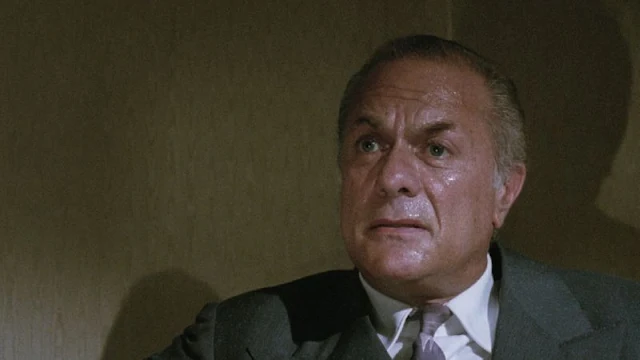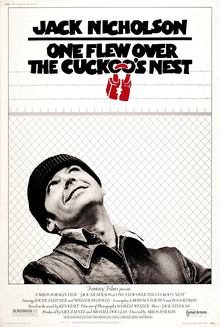A blog formerly known as Bookishness / By Charles Matthews
"Dazzled by so many and such marvelous inventions, the people of Macondo ... became indignant over the living images that the prosperous merchant Bruno Crespi projected in the theater with the lion-head ticket windows, for a character who had died and was buried in one film and for whose misfortune tears had been shed would reappear alive and transformed into an Arab in the next one. The audience, who had paid two cents apiece to share the difficulties of the actors, would not tolerate that outlandish fraud and they broke up the seats. The mayor, at the urging of Bruno Crespi, explained in a proclamation that the cinema was a machine of illusions that did not merit the emotional outbursts of the audience. With that discouraging explanation many ... decided not to return to the movies, considering that they already had too many troubles of their own to weep over the acted-out misfortunes of imaginary beings."--Gabriel García Márquez, One Hundred Years of Solitude
Search This Blog
Showing posts with label Will Sampson. Show all posts
Showing posts with label Will Sampson. Show all posts
Friday, November 1, 2019
Insignificance (Nicolas Roeg, 1985)
Insignificance (Nicolas Roeg, 1985)
Cast: Theresa Russell, Michael Emil, Gary Busey, Tony Curtis, Will Sampson, Patrick Kilpatrick. Screenplay: Terry Johnson. Cinematography: Peter Hannan. Production design: David Brockhurst. Film editing: Tony Lawson. Music: Stanley Myers, Hans Zimmer.
The imaginary conversation, bringing together people who never really met, is a time-honored way of exploring ideas, which is what Terry Johnson had in mind when he wrote a play about the encounter of Marilyn Monroe, Albert Einstein, Joe McCarthy, and Joe DiMaggio in a hotel room in 1952. To emphasize the fact that it was a play about ideas, he didn't call them by their real names but labeled them The Actress, The Professor, The Senator, and The Ballplayer. They could have been called Sex, Intellect, Politics, and Muscle, for all that matters. What we have in the film version is a sometimes provocative but for the most part muddled intersection of people whose myths are larger than their actuality. In the movie's best scene, Marilyn uses some toys and balloons to demonstrate to Einstein that she actually knows the theory of relativity. Whether she understands it, she admits, is another matter. At this point, the film verges on something like an exploration of ideas, the relationship between knowledge and understanding. But that's too much for a film to explore and still hold an audience's attention, so mostly we are left in Insignificance with an exploration of personalities, riddled with flashbacks to scenes from the lives of Marilyn, Einstein, and DiMaggio -- but not, interestingly, to McCarthy's life, which makes his inclusion in this stew of celebrities a problem to be pondered. He's there primarily to underscore Einstein's sense of guilt at having come up with ideas that contributed to the creation of the atomic bomb and hence the Cold War that caused the rise of McCarthyism. There's really no way to resolve the various conflicts among the characters than to end with a fantasy scene in which the hotel room is destroyed in an atomic cataclysm -- only to reverse the footage of destruction for a scene in which Marilyn bids Einstein goodbye. In the end, the film becomes mostly a story about the loss of identity suffered by celebrities, aided by some very good performances but undercut by a surplus of images that demand but don't reward interpretation.
Sunday, April 10, 2016
One Flew Over the Cuckoo's Nest (Milos Forman, 1975)
One Flew Over the Cuckoo's Nest is beginning to show its age, as any 41-year-old movie must. It no longer exhibits the freshness that won it acclaim as a masterpiece and raked in the five "major" Academy Awards: picture, director, actor, actress, and screenplay -- only the second picture in history to do that: The first was It Happened One Night (Frank Capra, 1934), and only one other picture, The Silence of the Lambs (Jonathan Demme, 1991), has subsequently accomplished that feat. Today, however, One Flew has the look of a skillfully directed but somewhat predictable melodrama; its tragic edge has been blunted by familiarity. In treating the material, director Forman goes for straightforward storytelling, without showing us something new or personal as an auteur. And as time has passed, some of the elements of the source, Ken Kesey's novel, that screenwriters Laurence Hauben and Bo Goldman took pains to mitigate -- namely the countercultural glibness and antifeminism -- have begun to show through. It's harder today to wholeheartedly cheer on the raw, anarchic antiauthoritarianism of McMurphy (Jack Nicholson) or to accept as a given the unmitigated villainy of Nurse Ratched (Louise Fletcher). We want our protagonists and antagonists to be a little more complicated than the film allows them to be. There are still many who think it a great film, but if it is, I think it's largely because it's the perfect showcase for a great talent -- Nicholson's -- supported by an extraordinary ensemble that includes a shockingly young-looking Danny DeVito, Scatman Crothers, Sidney Lassick, Christopher Lloyd, Will Sampson, and a touchingly vulnerable Brad Dourif.
Subscribe to:
Comments (Atom)









